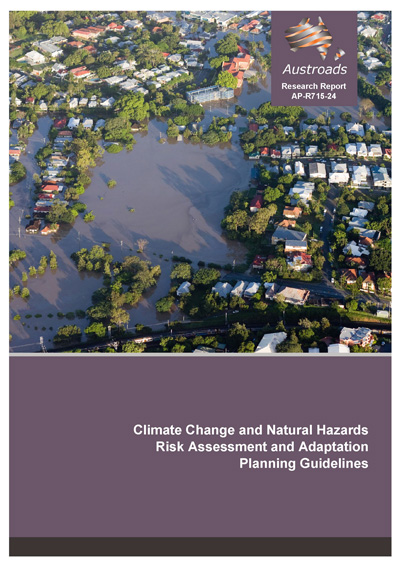Wednesday, 13 November 2024

The ability to assess and manage climate-related risks has become increasingly important across many sectors, including the transport sector.
Austroads has published a new framework for Australian and New Zealand transport agencies to guide climate change and natural hazard risk assessments and develop adaptation plans to mitigate risks.
The Climate Change and Natural Hazards Risk Assessment and Adaptation Planning Guidelines provide recommendations and best practice examples that are applicable to all transport-related assets and services, including road, rail, aviation, maritime, buildings, utilities, active transport, bridges and tunnels.
“Transport infrastructure and systems are typically designed to withstand local weather events based on historical records of climate. However, historical climate data is no longer a reliable predictor of future impacts due to climate change. Extreme weather events are projected to become more frequent and intense, increasing the vulnerability of transport networks and the communities they serve,” said Joanne Vanselow, Manager of the Environment and Sustainability Program at Austroads.
“Many organisations in the Australian and New Zealand transport sector have produced guidance documents to assist organisations to undertake climate and natural hazard risk assessments. However, Austroads recognised the need for an aligned approach in accordance with latest industry best practice and national, state and local policy. This led to the development of the Climate Change and Natural Hazard Risk Assessment and Adaptation Planning Guidelines,” she added.
The guidelines provide common guidance that can be used across Australia and New Zealand’s transport agencies. The guidance is intended to be flexible, guiding the application of both high-level and detailed risk assessments of physical and transition-related risks.
Download the Climate Change and Natural Hazards Risk Assessment and Adaptation Planning Guidelines.
Webinar
Join us for a webinar on Friday 15 November presented by Allan Klindworth and Upeshika Heenetigala, which will step through the process set out in the guidelines, highlighting key concepts with examples and supporting resources.
No charge but registration is essential. Can’t make the live session? Register and we’ll send you a link to the recording.
